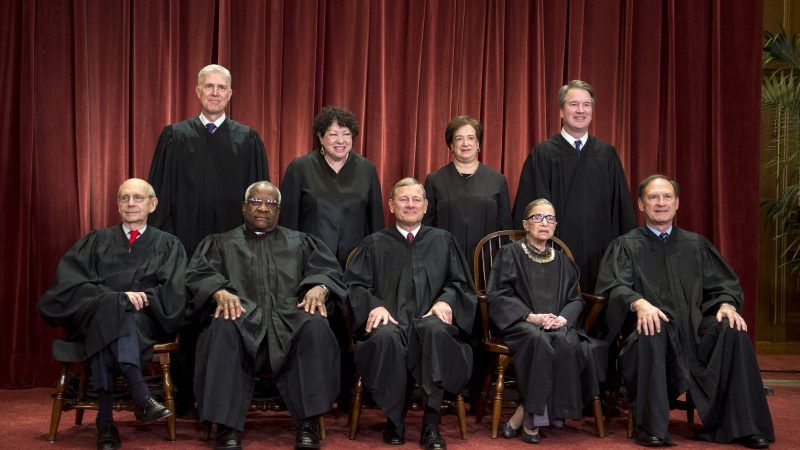The Supreme Court's Next Big Fourth Amendment Case
What’s at stake in Kansas v. Glover.

Assume the following: You are a licensed driver, age 17. You live with your father. His driver's license has been suspended. He hands you the keys to his car and asks you to run an errand. While driving to do that errand you are stopped by the police and subjected to roadside questioning. You have not broken a single law. The only reason why the police stopped you is because they guessed that your father might be driving. Was the traffic stop lawful? Or did it violate the Fourth Amendment's prohibition on unreasonable searches and seizures?
The above scenario is hypothetical but the questions it raises are genuine. In its October 2019 term, the U.S. Supreme Court will hear arguments in a case that asks whether the Fourth Amendment "always permits a police officer to seize a motorist when the only thing the police officer knows is that the motorist is driving a vehicle registered to someone whose license has been revoked."
The case is Kansas v. Glover. In 2016, a patrolling sheriff's deputy ran the plates on a Chevrolet pickup truck and learned that the truck's owner, Charles Glover, had a revoked driver's license. The deputy had no idea if Glover was actually behind the wheel. But the deputy still pulled the truck over on the assumption that Glover was driving. He was. Now Glover wants the Supreme Court to rule the stop unconstitutional under the Fourth Amendment.
"When a driver loses his license, he and his family must rely on other drivers (a spouse, a driving-age child, a child-care provider, a neighbor) to meet the family's needs," Glover and his lawyers point out in their brief to the Supreme Court. "Under Kansas's proposed rule…any of those other drivers can be pulled to the side of the road at any moment merely for driving a lawfully registered and insured car in a completely lawful manner." That rule, they argue, is an "unjustified intrusion on personal privacy" that violates the Fourth Amendment.
Kansas has a different take on what the Constitution allows. "The Fourth Amendment permits brief investigative stops—such as the traffic stop in this case," the state argues in its principal brief, "when a law enforcement officer has a particularized and objective basis for suspecting" illegal activity. In the state's view, it simply does not matter if innocent drivers happen to get stopped based on the false assumption that someone else is behind the wheel. "While it is certainly possible that the registered owner of a vehicle is not the driver, 'it is reasonable for an officer to suspect that the owner is driving the vehicle, absent other circumstances that demonstrate the owner is not driving,'" the state maintains. "That is the very point of investigative stops—to confirm or dispel an officer's suspicion."
Oral arguments in Kansas v. Glover are scheduled for November 4.


Show Comments (190)